
Erin Garcia de Jesús is a staff writer at Science News. She holds a Ph.D. in microbiology from the University of Washington, where she studied virus/host co-evolution. After deciding science as a whole was too fascinating to spend a career studying one topic, she went on to earn a master’s in science communication from the University of California, Santa Cruz. Her writing has appeared in Nature News, Science, Eos, Smithsonian Voices and more, and she was the winter 2019 science writing intern at Science News.

Trustworthy journalism comes at a price.
Scientists and journalists share a core belief in questioning, observing and verifying to reach the truth. Science News reports on crucial research and discovery across science disciplines. We need your financial support to make it happen – every contribution makes a difference.
All Stories by Erin Garcia de Jesús
-
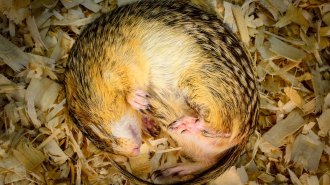 Animals
AnimalsGut microbes help some squirrels stay strong during hibernation
Microbes living in the critters’ guts take nitrogen from urea and put it into the amino acid glutamine, helping squirrels retain muscle in the winter.
-
 Humans
HumansBabies may use saliva sharing to figure out relationships
Actions like sharing bites of food or kissing may cue young children into close bonds, a new study suggests.
-
 Genetics
GeneticsA genetic analysis hints at why COVID-19 can mess with smell
People with some genetic variants close to smell-related genes had an 11 percent higher risk of losing their sense of taste or smell.
-
 Health & Medicine
Health & MedicineThe omicron variant is surging. Here’s what we’ve learned so far
Omicron is better at evading virus-attacking antibodies than previous coronavirus variants, but there are signs booster shots might help curb symptoms.
-
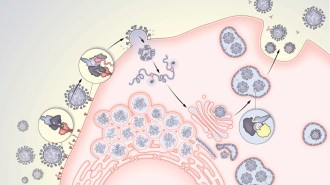 Health & Medicine
Health & MedicineWhy the coronavirus’s delta variant dominated 2021
Mapping delta’s unique group of mutations and how they enhance the virus’s life cycle show why the variant spread so easily and caused so much havoc.
-
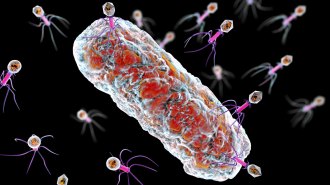 Microbes
MicrobesA bacteria-virus arms race could lead to a new way to treat shigellosis
As bacteria that cause shigellosis evolve to escape a virus, the microbes may become less deadly, a hopeful sign for “phage therapy.”
-
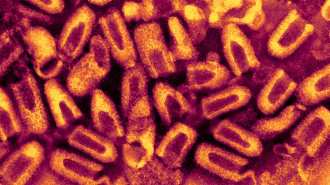
50 years ago, a 6-year-old boy became the first known rabies survivor
In 1971, a doctor thought he’d found a cure for rabies. Fifty years later, we still don’t have one.
-
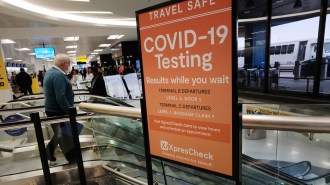 Health & Medicine
Health & MedicineWhat we know and don’t know about the omicron coronavirus variant
The new omicron variant has lots of mutations and sparked a surge of cases in South Africa, but researchers still don’t know a lot about it.
-
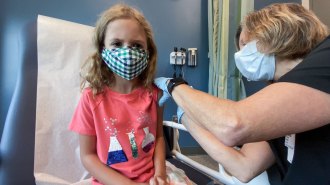 Health & Medicine
Health & MedicineWhat parents need to know about Pfizer’s COVID-19 vaccine for kids ages 5 to 11
Federal health officials authorized the Pfizer vaccine for this age group on October 29.
-
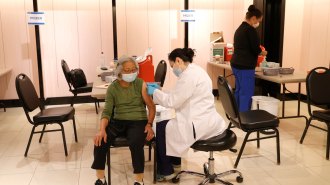 Health & Medicine
Health & MedicineHere’s what we know about booster shots for Moderna’s and J&J’s COVID-19 vaccines
Immunity against the coronavirus is waning, but additional doses of the same or different COVID-19 vaccines could help protect vulnerable people.
-
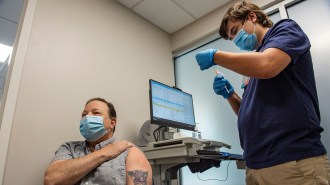 Health & Medicine
Health & MedicineWhy only some people will get COVID-19 booster shots at first
In the United States, boosters may next go to people 65 and older, those at high risk for severe disease and people whose jobs put them at high exposure risk.
-
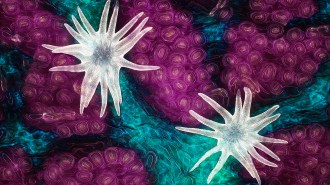 Life
LifeA beautiful oak leaf portrait won the 2021 Nikon Small World photography contest
The annual competition showcases otherworldly photos that capture microscopic features of nature and science.